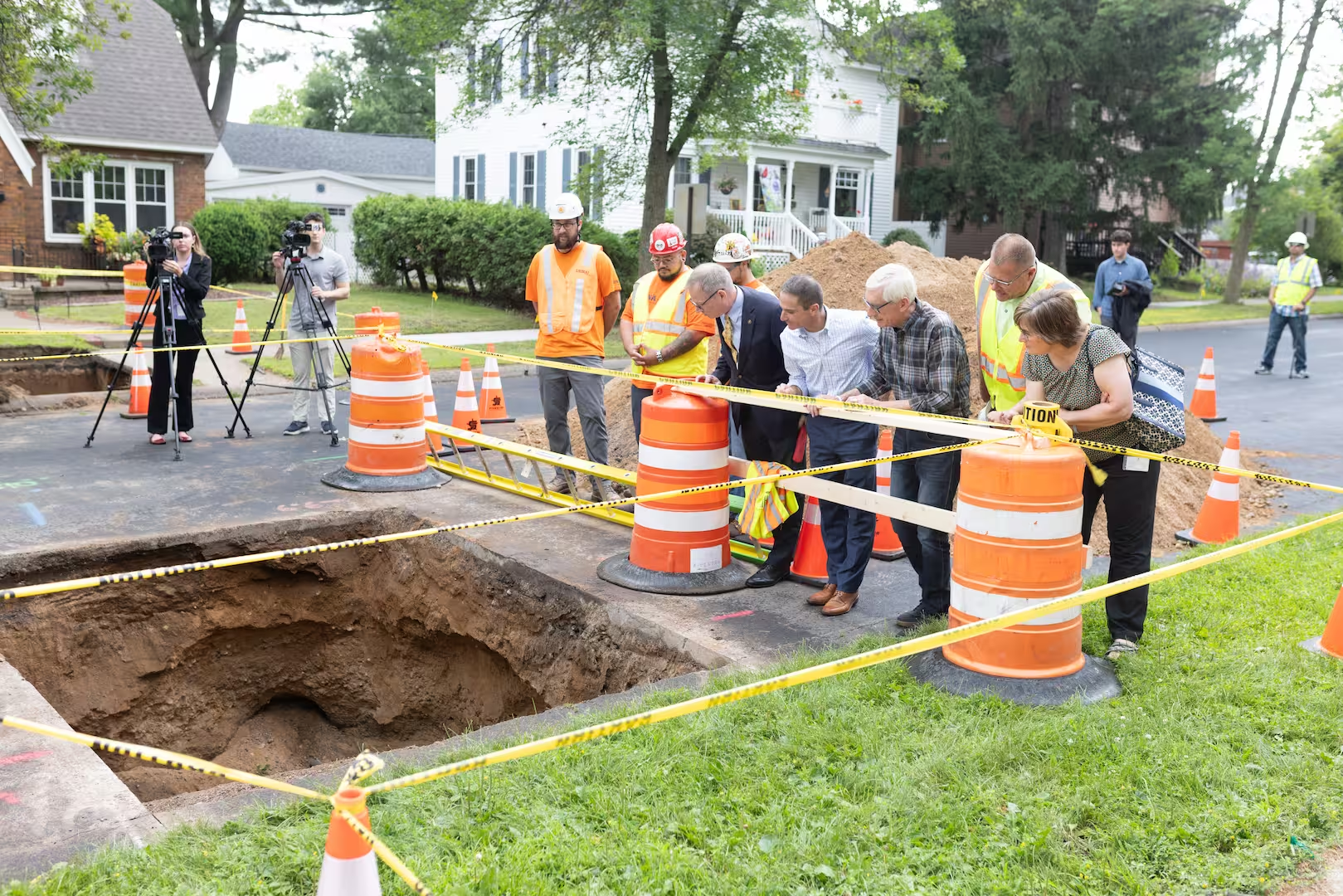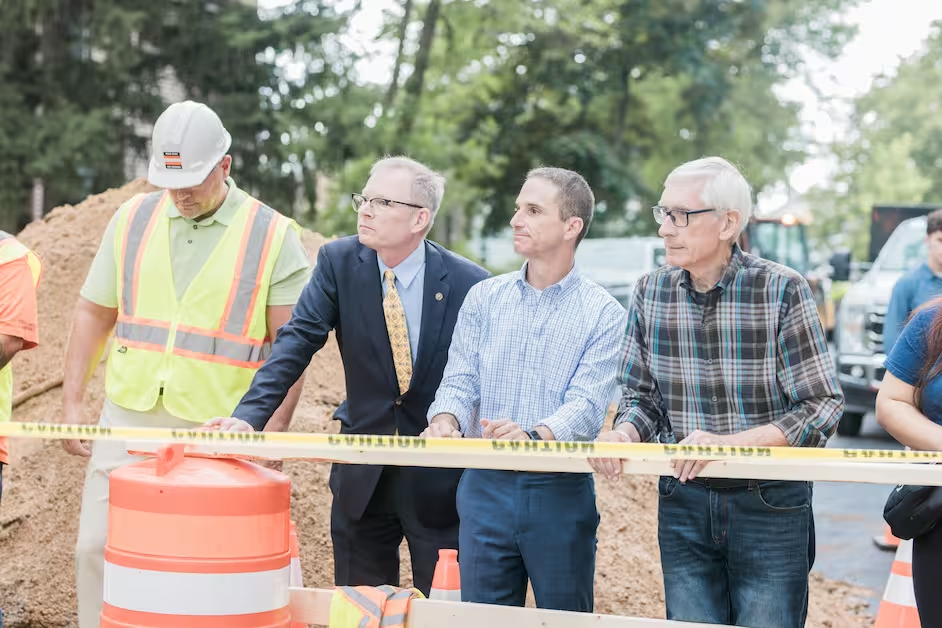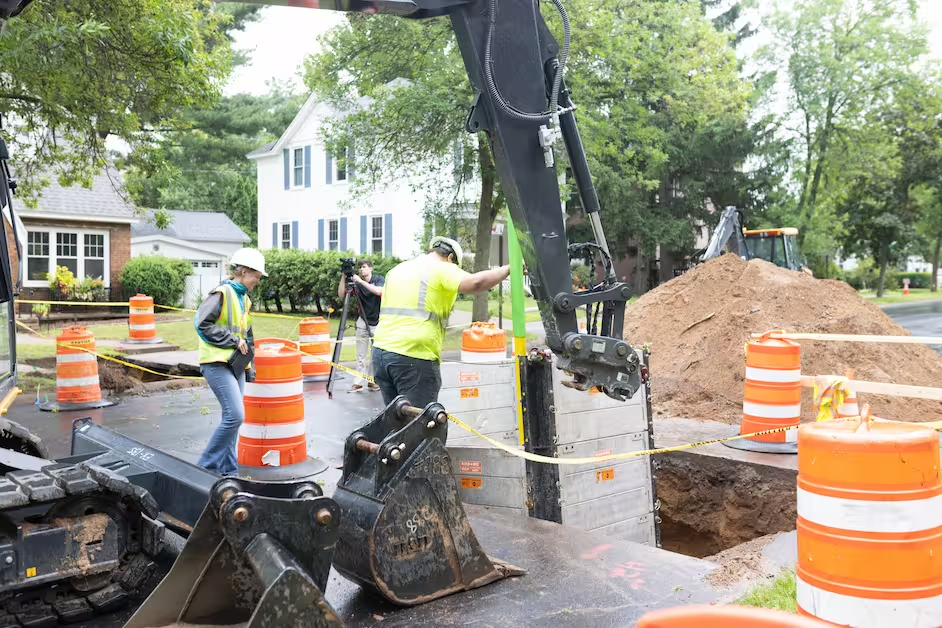
The City of Wausau marked a transformative milestone with the celebration of its 1,000th lead service line (LSL) replacement, achieved in just over one year through the innovative EquiFlow Lead-Free Program.

Celebrating 1,000th lead service line replacements completed in Wausau.

The City of Wausau started their lead line removal project just over a year ago. Now, city officials are celebrating what they call a big milestone.


Community Infrastructure Partners (CIP) has been recognized at the prestigious P3 Awards for its EquiFlow Lead-Free Program which won Best Utilities Project.

Celebrating Excellence in Infrastructure and Social Impact

Exclusive: Public authorities’ uncertainty over how much they may pay for projects developed with federal funding is holding back progress in lead service line replacement (LSLR) work - but one firm has introduced a tool to help change things

A company has launched a free calculator tool designed to help municipalities understand the costs of lead service line replacements (LSLRs) - and to encourage them to take advantage of federal funding.

Today, more than nine million lead service lines (LSLs) provide drinking water to communities throughout the United States.

Wausau's Mayor Katie Rosenberg was featured on Spanning The State with Kristin Brey. She discussed CIP's EquiFlow program and the importance of removing lead pipes throughout her community and others in a similar situation.

State and federal grants helping Wausau replace 8,000 lead service lines

City leaders on Tuesday approved a partnership between the city of Wausau, the water commission and community infrastructure partners to replace thousands of lead service lines

Lead pipes that deliver drinking water to homes remain commonplace in many communities around the state — in Wausau, the city is gearing up efforts to replace all of these lines within five years.

City is using a Community-Based Public-Private Partnership to replace 8,000 lead lines in five years for $80 million

Much of Wisconsin’s drinking water still flows through lead service lines. More than 150,000 lead pipes provide Wisconsinites with their water.

Biden administration officials praised Wausau this week as an example of how to quickly and aggressively tackle water quality issues

It's not everyday that Wausau gets a direct line to the White House, but Thursday, President Joe Biden's Senior Advisor was in town

Local, State, and Federal leaders officially started Wausau’s efforts to replace some 8,000 lead water pipes over the next five years

Representatives from the White House will be in Wausau Thursday to help kick off the city's effort to replace eight thousand lead service lines still in use in the city.

Wisconsin still has at least 150,000 lead service lines going to homes, businesses, and schools statewide, including 8,000 alone throughout the City of Wausau

A representative from the White House will be in Wausau on Thursday to help mark the start of the push to remove all 8,000 lead service lines still in use in the city.

The first Community-Based P3 (CBP3) in the country has been agreed in a move that will see over 8,000 lead service lines replaced in a city in Wisconsin.

Last week, the Wisconsin city agreed a first-of-a-kind P3 project to replace lead pipes. P3 Bulletin speaks to those involved about the new approach - and how it can be replicated

Wausau Mayor Katie Rosenberg has announced a pioneering initiative that will revolutionize the effort to eliminate lead service lines nationwide.

Today, Mayor KatieRosenberg of Wausau, Wisconsin, announced a pioneering initiative that will revolutionize the effort to eliminate lead service lines (LSLs) across the nation.
.jpg)
The work was part of SIG’s Emergency Contractwith Westchester County Department of Environmental Facilities’, at their Brockway Place Trash TransferStation (Station).
%20(1).png)
“In spite of all of our optimism in this moment, we are still fighting against the status quo.”- Kamala Harris, Vice President of the United States of America.
.jpg)
CIP's Chief Business Officer Sean Agid shares his thoughts with Paul Jarvis, P3 Bulletin, on how a lead service line replacement (LSLR) program fits the Community-Based Public-Private Partnership (CBP3) model very well.

The US is known for some of the world’s largest P3 projects. Whether it’s LaGuardia Airport in New York, Maryland’s Purple Line or the Sepulveda Transit Corridor currently in procurement in California, there has always been a smattering of projects across the country that offer investors the chance to put a large amount of cash behind a deal.

A new market entrant believes it can make a difference by integrating local communities into building tailored solutions.

A new US infrastructure services company wants to help contractors and government agencies to scale up small infra projects using community connections and local resources.
Community Infrastructure Partners Set to Transform Infrastructure Delivery Models by Putting Communities First